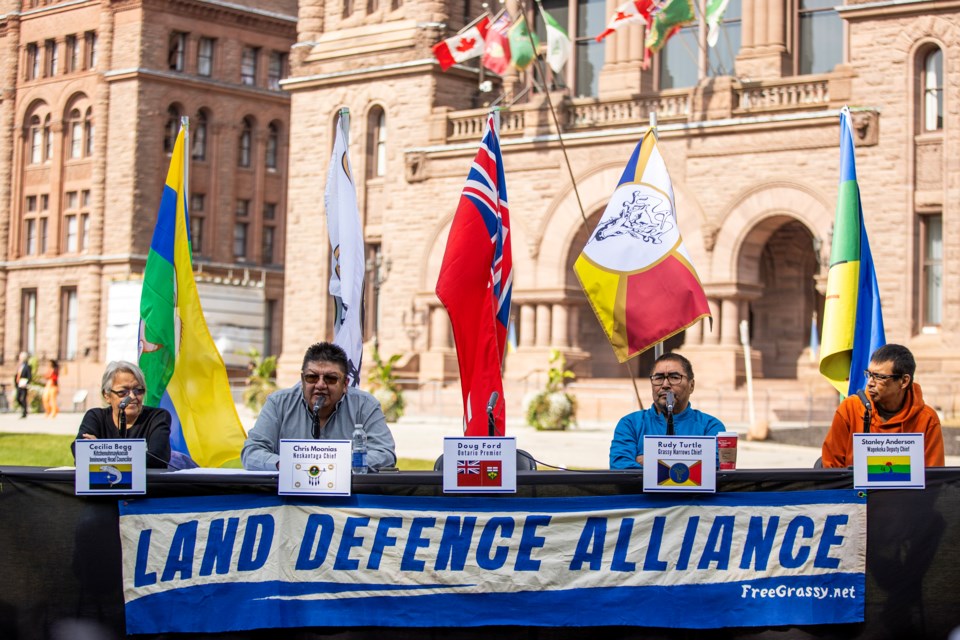EDITOR’S NOTE: This article originally appeared on The Trillium, a Village Media website devoted exclusively to covering provincial politics at Queen’s Park.
Ontario's mining regime could be turned on its head if a recent lawsuit by Grassy Narrows First Nation is successful.
The northwestern Ontario First Nation is asking the court to invalidate all mining claims on its territory and force the government to consult before a claim is staked, said Jackie Esmonde, the lead lawyer.
While the suit is about Grassy Narrows' territory, it could have province-wide implications, Esmonde said.
"It's only talking about a particular area that's identified on a map and the declarations and relief we're seeking are specific to that area," she said. "But if the court was to agree with us ... that will undermine the Mining Act throughout the province."
"It has enormous implications for the mining industry in Ontario," she said.
At issue is Ontario's "free entry" mining claims system that allows a prospector to pay a small fee to stake a claim to a piece of land online without ever visiting the site, Esmonde said.
"They can then sit in their home in their pyjamas on their laptop and register a mining claim on Grassy Narrows territory without ever setting foot there, and crucially, without giving any notice, without consulting, without obtaining consent," Esmonde said.
Staking a claim is the first stop in the mining process. It doesn't allow a company to start mining but "prospectors with mining claims can go onto the land, engage in industrial activities like building heavy machinery, trails, clearing trees and bush, digging pits and trenches and removing all the soil and trees down to the bedrock," Esmonde said.
"These practices have to change. It's damaging our land. We want our land to remain intact because of our cultural practices, our way of life," said Grassy Narrows Chief Rudy Turtle.
Neither the attorney general's office nor the Indigenous affairs minister's office responded to The Trillium's request for comment before publication.
The suit hopes to capitalize on a recent decision from the B.C. Supreme Court that found the province's mining permit system violated the government's duty to consult with Indigenous communities.
The suit forced the B.C. government to review its mining system and make it consistent with the constitutional duty to consult before a claim is made.
The court gave the province time to respond and didn't invalidate all existing claims. The province also agreed to pause all future claims while the process plays out.
Currently, there are over 10,000 claims on Grassy Narrows territory. The First Nation often only finds out about claims after the fact through a Google search, said Joseph Forbister, who heads up the Grassy Narrows Land Protection Team.
Grassy Narrows is open to settling the issue outside the courtroom, Esmonde said.
"Grassy Narrows and other Indigenous nations have been asking Ontario to come to the table to talk about it, and they've refused. And that is still possible. If Ontario wants to come in good faith to the table, talk government-to-government with Grassy Narrows, then a resolution could be negotiated," she said.
The suit marks the latest step in several First Nations' efforts to change the provincial mining regime.
Last year, the Land Defence Alliance — a group of five First Nations — rebuffed Indigenous Affairs Minister Greg Rickford and demanded a meeting with Premier Doug Ford.
The Alliance later held a protest outside Queen's Park.
